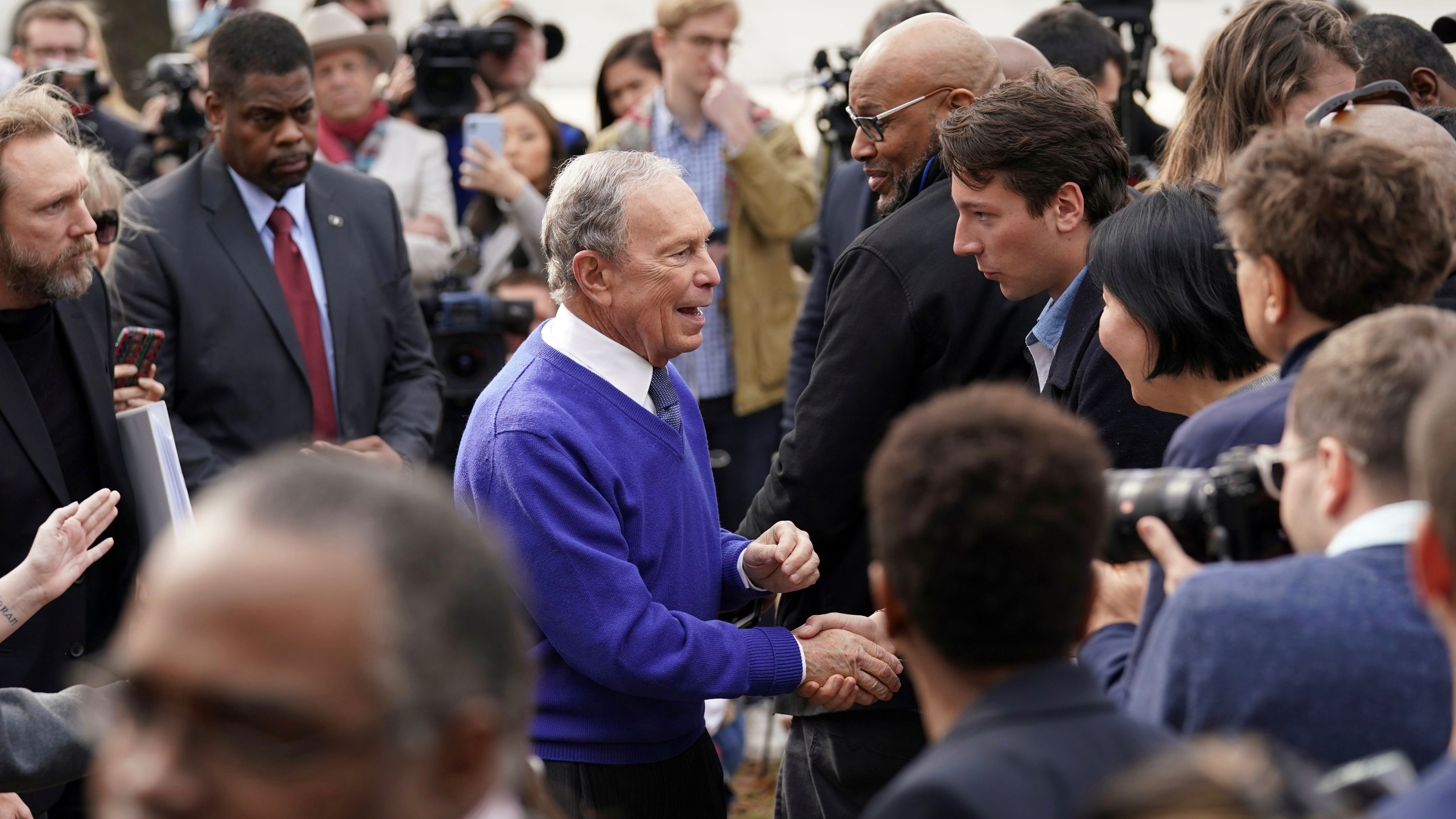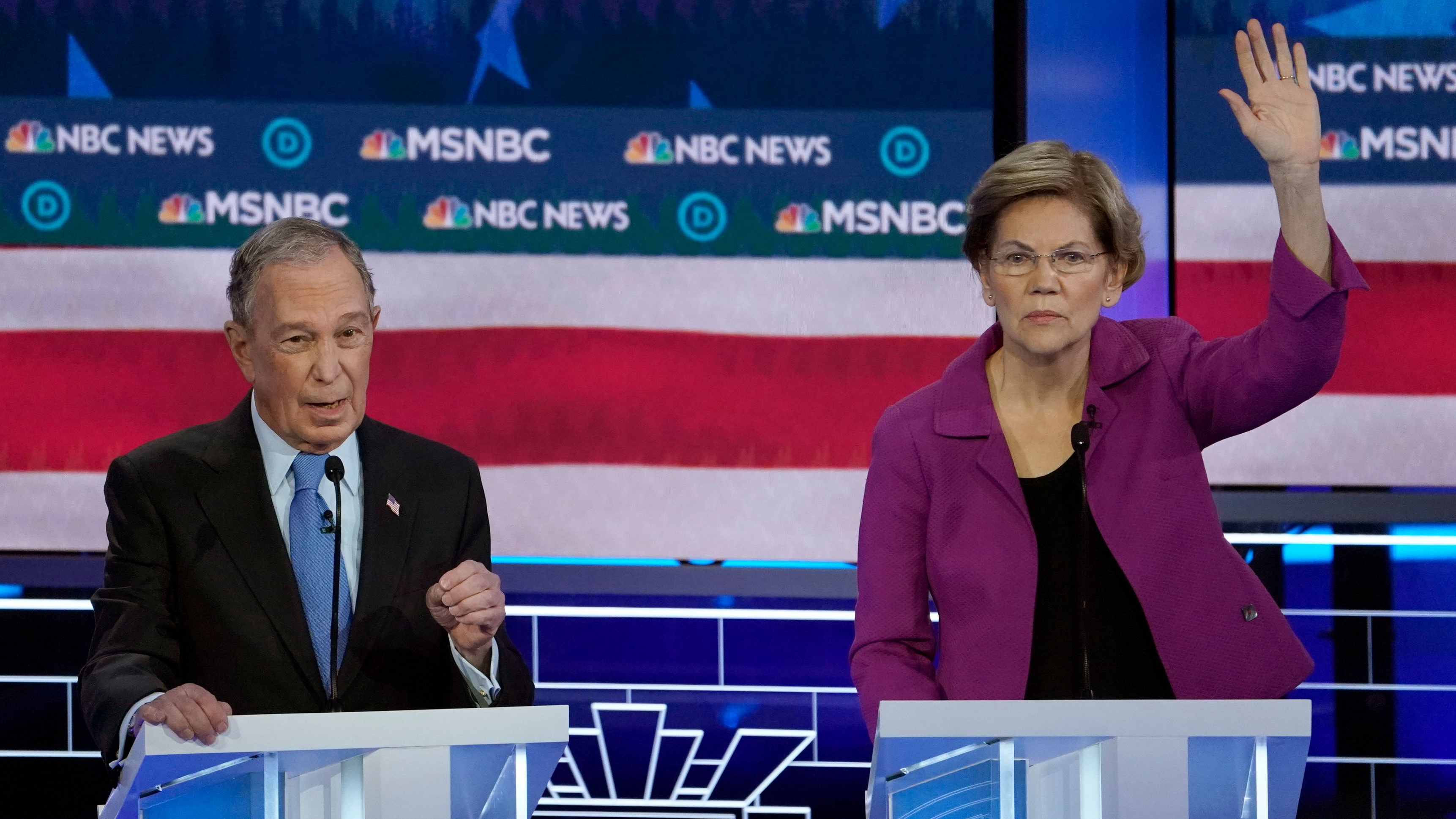New York billionaire Michael Bloomberg has bowed out of the race to become the Democratic Party's nominee for U.S. president after a dismal Super Tuesday result. On Wednesday he backed former vice president and fellow moderate Joe Biden's bid for the White House.
Biden wins Texas, Sanders takes California
Who were the Super Tuesday winners and losers?
Biden is the Democrats' "best shot" at defeating President Donald Trump in his attempt at reelection, Bloomberg said in a statement on his campaign website, dated March 4. "I will work to make him the next President of the United States." he added. Bloomberg initially entered the Democratic fray as a moderate alternative to Biden.
Meanwhile, Biden emerged victorious from Super Tuesday, claiming victory in 10 states. But Bernie Sanders, a self-declared socialist and previously the Democrat race's front-runner, took California, the U.S.' most delegate-heavy state. Final delegate allocations are yet to be announced.

Michael Bloomberg greets volunteers, Manassas, Virginia, U.S., March 2, 2020. /Reuters
Michael Bloomberg greets volunteers, Manassas, Virginia, U.S., March 2, 2020. /Reuters
Bloomberg's campaign was unique in its strategy. As one of the world's richest men he was able to entirely self fund his bid for the White House, leveraging over 500 million U.S. dollars of his own money on advertising in an attempt to win over the U.S. electorate.
Entering the Democrat field in November last year, later than the other candidates, Bloomberg bypassed the first cluster of primaries and caucuses in February on the basis that they offered few delegates, instead focusing on Super Tuesday. In percentage terms, voter support for Bloomberg peaked in the mid-teens.
In The Spotlight: Michael Bloomberg
Takeaways from the Democratic primaries
"Tomorrow is going to be better," Bloomberg tearfully told a rally in New York on Wednesday evening. "Our campaign for a better America... continues, and together we will get it done," he said.
Bloomberg's campaign was big on typical Democrat fodder such as gun control and restricting drugs prices, and was also tough on tackling climate change. But, a poor first debate performance in Las Vegas on February 19, in which he was targeted by his Democrat rivals, is thought to have contributed to his campaign's unraveling.

Michael Bloomberg and Elizabeth Warren at the ninth Democratic primary debate, Las Vegas, Nevada, U.S., February 19, 2020. /Reuters
Michael Bloomberg and Elizabeth Warren at the ninth Democratic primary debate, Las Vegas, Nevada, U.S., February 19, 2020. /Reuters
Despite a public apology in late November, the businessman-turned-politician was dogged by the controversial stop and frisk police tactic that became notorious during his tenure as New York mayor, which disproportionately targeted the black and Latino community. He was also criticized for holding women to non-disclosure agreements over their complaints about comments he had made.
Bloomberg's party switching also raised questions about his suitability be the Democratic Party's presidential candidate. He was elected mayor of New York as a Republican in 2001, though later successfully ran as an independent, staying in the position until the end of 2013.
Bloomberg amassed his fortune of around 60 billion U.S. dollars by founding Bloomberg LP, a financial data and news platform.
He and Trump, old acquaintances from the same influential New York circles, jostled on Twitter following the former's withdrawal. "I could have told him long ago that he didn't have what it takes, and he would have saved himself a billion dollars, the real cost," Trump tweeted on Wednesday.
Bloomberg responded directly with a 15-second Star Wars video, showing light saber-wielding Alex Guinness' Obi-Wan Kenobi jostling with Darth Vader.
(Cover: Reuters)